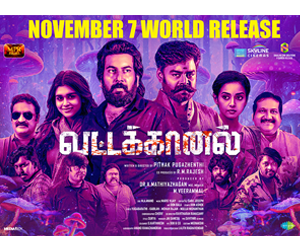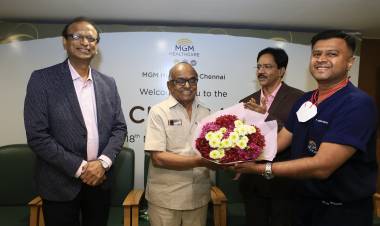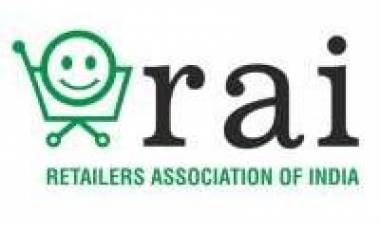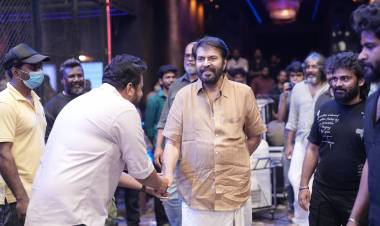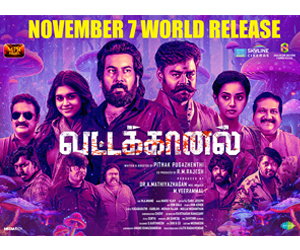Chennai Breast Centre’s ‘Engal Utsav’ Unites 250+ Breast Cancer Survivors for Awareness on Post-treatment Care

Engal Utsav – Breast Cancer Survivor Day Celebration, jointly organised by Chennai Breast Centre, one of the city’s leading breast cancer care facilities, and Sharana Breast Cancer Relief & Research Foundation, a volunteer-driven support group, brought together over 250 breast cancer survivors and their spouses to promote awareness on survivorship and post-treatment care. The event focused on lifestyle modifications, insurance options, and breast reconstruction procedures, offering participants both emotional and informational support to enhance recovery and long-term well-being.
The event featured distinguished speakers from diverse fields of healthcare, including Dr. Sheela Nambiar, Consultant Obstetrician and expert in Lifestyle Medicine; Dr. Venkat Ramakrishnan, Consultant Plastic and Reconstructive Surgeon at Chennai Breast Centre; and Dr. S. Prakash, former Managing Director of Star Health Insurance.
Talking about Engal Utsav, Dr. Selvi Radhakrishna, Director, Chennai Breast Centre, and Founder, Sharana Breast Cancer Relief & Research Trust, said, “We are truly happy and proud to organise Engal Utsav, which is a celebration of courage, compassion, and community. Breast cancer survivors often carry many unspoken worries - the fear of relapse, uncertainty about finances for ongoing care, and doubts about what lifestyle choices can best support their recovery. There is also limited awareness about options like breast reconstruction and other restorative therapies. Utsav was conceived to address all these concerns under one roof through open dialogue, expert guidance, and shared experiences.”
In her address, Dr Sheela Nambiar said, “Health cannot be managed by doctors alone – patients must take an active role in their own well-being. The first step is regular screening for lifestyle diseases and cultivating conscious daily habits. Nutrition, movement, sleep, stress management, and relationships form the true foundation of health. What we eat shapes our gut health and immunity; adequate sleep restores balance; and stress – though inevitable – can be managed through mindfulness, meditation, or cognitive behavioural therapy.”
She emphasised that movement is vital. “A morning workout isn’t enough; our bodies are designed to stay active throughout the day. Equally important are emotional and social well-being. Authentic connections strengthen mental health, while minimising toxic interactions preserves peace and energy. Ultimately, health is about agency – realising that while doctors can treat, only we can truly heal ourselves. Real strength lies in taking charge, understanding our bodies, making conscious choices, and becoming active participants in our healing journey.”
Talking about reconstructive breast surgery, Dr Venkat Ramakrishnan said, “Breast reconstruction is not just a surgical option. It is an important part of a woman’s emotional and physical recovery after breast cancerIn India, breast cancer accounts for nearly one-third of all cancers among women and tends to occur about a decade earlier than in Western countries. In this context, it is important for women to know that breast reconstruction can help restore confidence, body image, and a sense of wholeness after mastectomy - and that it is both safe and achievable. Unfortunately, due to limited awareness, cultural hesitation, and financial constraints, fewer than 1% of women in India undergo breast reconstruction, compared to over 65% in Europe.”
He added, “Today, reconstruction techniques have evolved dramatically. Microsurgical procedures using a woman’s own tissue can be performed during the same operation as breast removal, with over 99.5% success when done by surgeons specialised in breast reconstruction. These natural reconstructions age with the body, and sometimes even reducing the need for post-surgery radiotherapy. The way forward is to integrate reconstruction into cancer treatment and expand training for surgeons.”
Talking about health insurance, Dr. Prakash said, “Today, we are witnessing remarkable progress in both the insurance and healthcare sectors, yet individual stakeholders often remain dissatisfied. There is, in essence, no win-win situation among the three key players – policyholders, service providers, and insurance companies. We must work towards a more inclusive health insurance ecosystem that covers not only healthy individuals but also those undergoing or recovering from illnesses such as breast cancer. Unfortunately, this is not the case today.”
He pointed out that the way forward begins with open dialogue and greater transparency. “Before purchasing an insurance product, people must fully understand what it covers, under what circumstances, and to what extent, so that disappointments and delays can be avoided. Likewise, the industry and hospitals must listen more closely to the needs of healthcare consumers. Continuous engagement between all stakeholders will build trust, expand the customer base, and ultimately enable the creation of more inclusive and equitable insurance products.”




